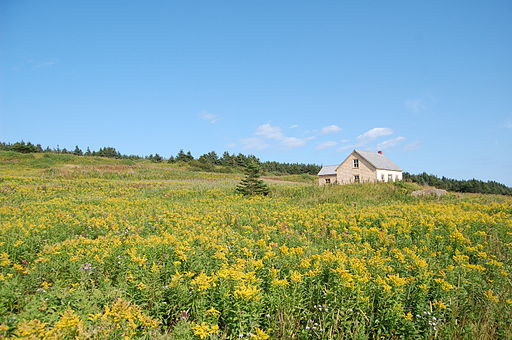Finding the right place for a survival retreat means you will have to do a complete analysis of the land to see if it can provide shelter, protection, reliable water and food-growing ability. The property you choose will depend on your needs and your skills.
You have to take in account the weather, infrastructure, medical conditions, resources available and your ability to survive in these conditions for a long period.
Choosing The Land
The most important part of the process is choosing the right land for your needs. Once you have your budget, you can start looking for survival acres that suit your needs by considering such things as:
- Farmable land
- Elevation, risk of floods and fault lines for earthquake risk
- Sustainable environment with different species of trees, plants, birds and other wildlife
- Distance to the nearest water supply and healthcare facility
If you plan to grow your own food or raising livestock, you should have the land and water tested to make sure it safe for animals.
Homesteading Skills
Homesteading in your survival acres requires the right set of skills to make it work. Being self- sufficient takes a lot of hard work and many different skills to enable you to live in your own like our ancestors once did. Even if you don’t have your own property you can start practicing some of the skills now, such as:
- Learn to be your own handyman. You should be able to fix most anything in your house.
- Gardening, find out what will grow on your property. Choose organic gardening because you may not be able to find chemicals and fertilizers.
- Learn to choose animals that can provide food, useful function, by-products and waste
- Learn methods of food preservation
- Learn how to hunt, trap and fish
Self-sufficiency means you are responsible for you and your family. Take first aid classes, self-defense classes and weapons training with arms like guns, and bow and arrows. Learn these things now so you can become an expert, or at least very good, for when the time comes and you cannot afford to make a mistake.
Amount of Land
Most people think that a survival retreat has to be acres and acres of land, but that is not actually true. With proper land management, an acre will provide enough room for a substantial garden, orchard and animals.
- Garden – With vertical and raised bed gardens, you can grow more food and grains than you could on twice the amount of land.
- Orchard – Dwarf fruit trees take up less room and produce more than enough fruit for eating fresh and preserving until the next harvest.
- Hydroponics – The method of growing without the need for soil, and can be set up to also support fish and duckweed for feeding chickens.
Keep in mind; cows are not the only source of meat. A number of small livestock can give you fresh meat as well. Some small livestock for survival acres are:
- Goats- They are easy to raise and they eat brush and weeds. Their manure does not need to be composted before use on your garden. Pygmy and dwarf goats are an excellent source of meat and milk.
- Rabbits- They breed rapidly and are an excellent source of lean meat. You can tan the hides and put their droppings directly on your garden.
- Chickens- Good for meat and eggs. You can let them free range to save on the cost of grain.
Shelter
When it comes to shelter, you have many options. If you are building a house be sure to consult a security and survival expert to make sure you put in the proper security and safety features. If the house is already built, the same survival expert can give you ideas on how to upgrade the home to your survival needs.
You can also build a bunker, which will protect you and your family from both natural and man made disasters. If you are building a doomsday bunker, be sure to consult a survival expert.
Water and Energy
Because water is essential to survival, your survival retreat need to have a reliable source, both for your livestock and your consumption as well. You can use it for fish and hydroelectric power too. If you do not have a source of water, a cistern capable of holding 1000 gallons of rainwater is an option.
If you are not on the power grid, you will need alternate sources of energy like solar, wind or backup generators.
Security
A big reason for having your own survival acreage is to provide security for you and your family. Do a thorough check of your property looking for any areas of access, where trespassers can get in easily. Consider fencing, or even planting the perimeter of your property with thorney blackberry bushes or cactus, depending on your location.
Ask other preppers for ideas of how to protect your property. Even if their suggestions seem extreme, the world is full of desperate people willing to do desperate things in times of disaster.
The Author:
C.L. Hendricks has been a Jill-of-all-trades and become an expert in some, including active participation in the preparedness movement.
